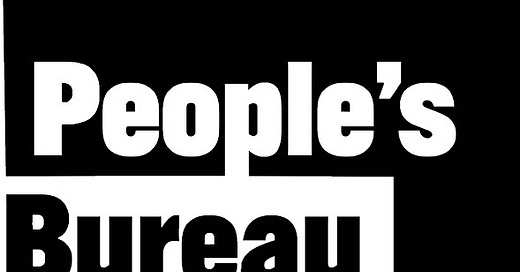🚰 Water shut-offs, fees in city hands
February 10, 2021 | Letter. No. 32
Whether from the derecho storm or the long pandemic, many households are still struggling to make ends meet. While evictions and water shutoffs were paused early in the pandemic, many residents in this late hour of a still slow economy find themselves without jobs and the ability to cover rent or a water bill.
Tuesday night, the Center for Worker Justice, the Johnson County Affordable Housing Coalition, and several residents came to Coralville Council asking for a stop to water shutoffs, late fees, and for additional general fund assistance.
Cities provide water to households, and organizations looking for quick assistance for households see this power as a potential boon for hard-hit residents. A city could decide to suspend shutoffs and late fees. They could also be the source of complete forgiveness of this debt.
I think there is way this gets sorted as the assistance program flavor of the month, but I’ll remind you, these groups were talking about water bills and their potential to help households back in April 2020.
"Forgiving a utility bill is a really straightforward way to offer help to families that doesn't involve a long application process," Barron said. "It's something that can be a direct contribution from city governments."
But unpaid water bills do impact the money paying for that program. One of the stories I’ve been sitting on—for no good reasons other than time—has been the impact delinquent water bills have had on the water enterprise fund (a self-sufficient fund run by the cities meaning the fees cover expenses). It should be said that the number of accounts past due and the amounts that are 30 days past due are as high as they’ve ever been.
Another rub is that when Coralville reinstituted its late fees and shutoffs, many of those bills got paid.
“There were a lot of people who could pay the bill and did pay the bills that were just taking advantage of the system,” City Admin Kelly Hayworth said. If the stick isn’t in place, there’s a very real issue of determining who is struggling to pay and who is spending that money elsewhere.
Cities like Coralville have opted to give residents payment plans as a means of managing financial blows individually, but if people aren’t calling in to set up those plans or the language barrier gets in the way, that may not be an apparent way forward.
The fact is, there is no shortage on places that money could go: rent, other utilities, food, gas, new work uniform, or textbook. But as the long pandemic stretches on, ideas like water bill forgiveness might be a powerful source of direct aid in a continued, difficult time.
The question becomes how long can they afford to do it and how long residents can afford to go without that help.
Yours,
Zachary Oren Smith
Miller-Meeks hires two key D.C. positions
After a long recount and ongoing contest, U.S. Rep. Mariannette Miller-Meeks has been cautious about hiring new staffers both in her D.C. office and her Davenport district office. As of Tuesday, they hired on a new legislation and communications director.
Kyle Jacobs was named the new legislative director. This is the monitor of the legislative schedule, a position that will advise Miller-Meeks both on policy positions but also strategy as bills move from committee to the floor. He’s spent the last seven years working his way up the legislative team of now-retired U.S. Rep. Phil Roe of Tenn.’s 1st.
William Kiley was named the new communications director. He’s coming from the office of U.S Rep. Brian Fitzpatrick of Penn.’s 1st.
They join Miller-Meeks' Chief of Staff Tracie Gibler, a former chief of staff to recently ousted Iowa Republican U.S. Rep. Steve King, and Deputy Chief of Staff Austin Harris.
In addition to the new directors, Kiley said they are hiring on a staff assistant in D.C. He added that a yet-unannounced Davenport office’s district director has been hired “with more staff coming there as well.”
Take Five
(This time something gripping from Yamamoto Hozan.)
📻 Catch me on CSPAN - On the first day of the impeachment trial, they brought me on for an update on #IA-02.


😷 IDPH? Who needs ‘em. - In case you missed it—I’m not sure how you did—but the bombshell story of this week was hearing from Iowa Department of Public Health officials that Gov. Kim Reynolds hadn’t consulted them about her decision to drop the limited masking rules.
⛓️ Banning 1619 Project from Schools - Some Iowa Republicans seek to ban the 1619 Project, a landmark curriculum centering the widespread practice of slavery in the teaching of U.S. history, from being taught in schools. Iowan Nikole Hannah-Jones of Waterloo headed the construction of 1619:
“The 1619 Project is a work of journalism. It uses historical facts and historiography to illuminate a part of our country and our story that we don't know enough about," Hannah-Jones said in an interview with the Des Moines Register.
💻 Microsoft wins quick-draw bid - The Iowa Department of Public Health posted a notice online Monday that it intends to award an emergency contract to Redmond, Washington-based Microsoft, the Associated Press reports. The agency gave vendors just one day to respond to the emergency request for proposals last week.
🎓 Always less funding, always more requirements - As the Iowa Legislature continues to cut appropriations they are asking this year for more evidence and oversight of the Universities. One would require faculty to conspicuously disclose sponsors for externally supported or funded research. Another would end tenure. And this from Johnson County’s Republican in the Iowa House:
“Your goal as universities is education, not indoctrination,” Rep. Bobby Kaufmann, R-Wilton, said during a government oversight hearing last week.
Subscribers make this possible
If you are finding value in this work, I hope you will consider subscribing to it too.


Zachary Oren Smith writes about government, growth and development for the Iowa City Press-Citizen. Reach him at zsmith@press-citizen.com, at 319 -339-7354 or on Twitter via @Zacharyos.




